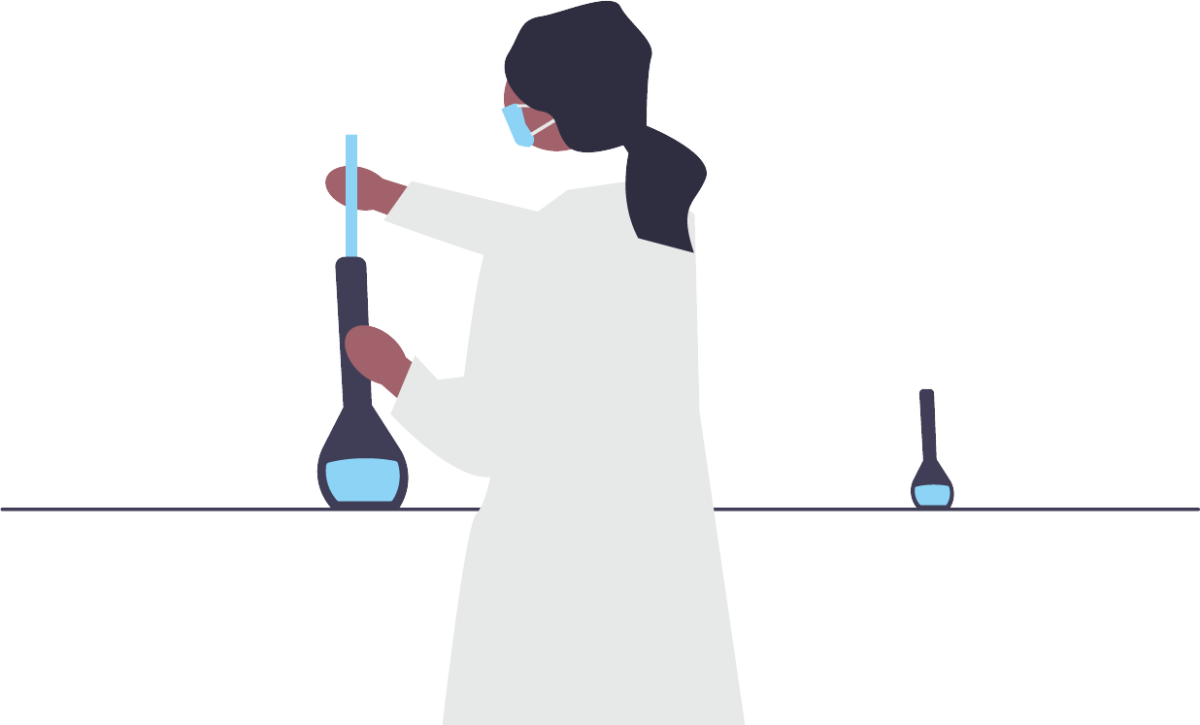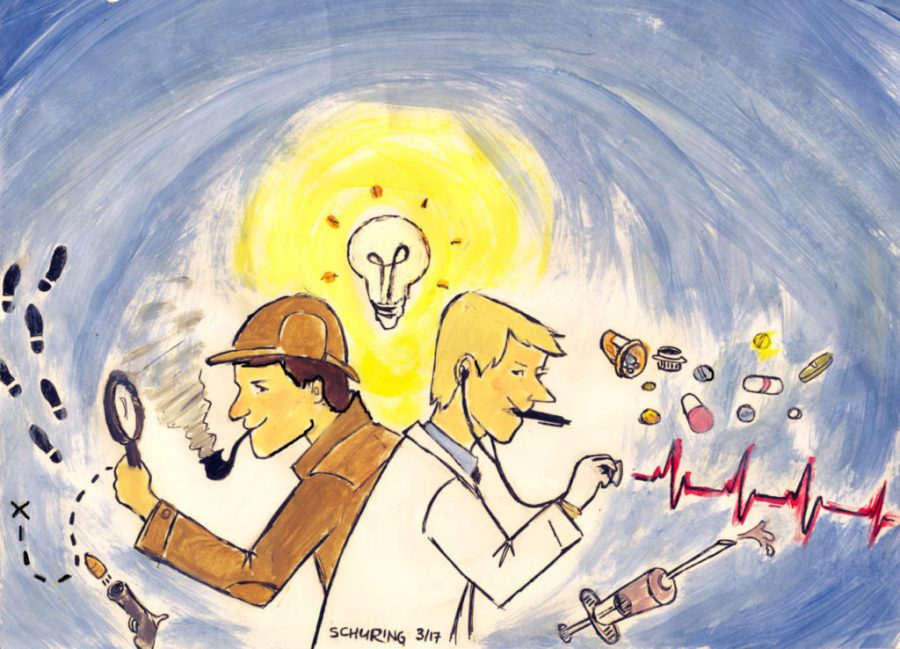A few weeks ago, I was treated by an orthopedic surgeon for a recurring shoulder injury. It didn’t take long for introductory small talk to reveal that I was a medical student and my doctor was a member of the University of Utah School of Medicine Class of 1968, and we soon became quite friendly. My appointment was graciously extended as we continued to chat long after my shoulder had been examined. We exchanged stories about our respective medical school experiences, discussed my career plans, and talked about how much medicine has changed over the last few decades. At the close of the visit, the doctor said that he had a single piece of advice to assist me in my nascent quest to become a successful physician. His sage words of wisdom? “Read Sherlock Holmes.”
This tip might strike you as more than a bit odd. It certainly caught me off-guard at first. However, if you are a pre-med or medical student, put the idea to the test as I have (I’m currently halfway through novel number four), and the good doctor’s logic will invariably come into focus. Before diving into the texts, however, allow me to provide some relevant historical context.
For starters, Sir Arthur Conan Doyle, the author of the 60 novels and short stories about the world’s first “consulting detective,” was himself a physician. Doyle received his medical degree from the University of Edinburgh in 1881 worked briefly as a doctor on two ships, and then opened his own medical practice before publishing his first novel, “A Study in Scarlet,” in 1887.
It is also important to know that the two main characters in this novel, and all of the Sherlock Holmes works that followed, were largely taken from Doyle’s own life. Dr. John Watson shares striking similarities with Doyle himself: both are physicians who transition from a career in medicine to one focused on writing. Holmes, on the other hand, was modeled after a medical school professor, Dr. Joseph Bell, who inspired Doyle by his uncanny ability to make difficult diagnoses with seemingly limited and unrelated clinical clues; in other words, his ability to solve medical mysteries.
With this in mind, it is easy to see that Doyle’s stories are about more than just crime-solving. At their core, their plots revolve around Holmes — modeled after the brilliant diagnostician — who is training Watson, and Watson represents the young doctor striving to sharpen his skills, in what Doyle calls “the science of deduction.” As each murder or robbery develops, Holmes takes time to instruct his friend on how to develop and apply awareness, thoughtfulness and inference. Holmes sums up his assessment of the ever-eager but often simple-minded Watson in one succinct sentence:“You see, but you do not observe.” This criticism is at the heart of my orthopedic surgeon friend’s suggestion to incorporate Doyle’s books into my medical education. To be a successful detective — whether you are solving crimes or making diagnoses — you must learn to look beyond the superficial, think deeply about the clues presented to you, and devise a suitable solution.
Unfortunately, this talent is quickly becoming a lost art in the world of medicine, for a variety of reasons; time pressures instituted by current payment structures and a rising dependence on technology are two that come to mind. Physicians are losing their ability to think independently, critically and creatively about their cases. My orthopedic surgeon made this point to me time and time again. Charmingly old-school, he bragged that he could learn more from two simple tools — his hands and his brain — than most doctors of the younger generation could with all of the MRI, CT and X-ray scans that money can buy. He promised that a thoughtful reading of “Sherlock Holmes” would encourage me to avoid a similar fate and to learn to look beyond a simple image or lab value; to think deeply about their clinical significance; to thoughtfully synthesize various data into a coherent differential diagnosis; to graduate from simply seeing the world around me to truly observing it.
This has certainly been the case. The past month of my medical education has been enormously enhanced by immersing myself in Sherlock Holmes’s world of observation and deduction. I am sure that I will benefit from many of the lessons found in its pages throughout my career as I work to make sense of difficult cases and learn to apply the full weight of my intellect to my craft. So I echo the advice of my orthopedic surgeon and encourage you to add a Sherlock Holmes novel to your biochemistry, pharmacology and genetics readings. You might be surprised by the results.






















David Lyman, MD, MPH • Aug 23, 2021 at 4:27 pm
I have been guided for years by Occam’s Razor – the deductive logic of S. Holmes. I stated in a blog (somewhere) as follows:
1. The good family doc always listens to and observes the patient. Even if the patient is critically ill and cannot talk to you, he or she will guide you to the correct diagnosis, but only if you reassess the situation with an open mind during each day (or night) of care.
2. Never assume you know more than your patient does about his or her condition. The patient may use non-medical terms to describe his/her perception of the problem. Your job is to apply correct medical terminology to the patient’s complaint(s) and praise the patient’s efforts to cooperate with you.
3. Your understanding of the problem must be reviewed with the patient before you can proceed to any diagnosis and treatment.
4. Each problem should generate a “differential diagnosis” before you proceed to treat. If the patient insists that there are “ants crawling up his/her legs” and you see no ants, the treatment is different because the diagnosis is different.
5. If the patient does not respond to best treatment, then the diagnosis must be suspect.
6. Correct diagnosis and response to treatment is unique to each illness. Confirmation of cure is the responsibility of a wise physician.
7. I have read many explanations of Occam’s razor, perhaps best explained by Sherlock Holmes of antiquity himself: “Only after you have eliminated the impossible, whatever remains, however unlikely, is the correct answer.” If ONE process or entity explains all findings, then that is that is certainly the correct diagnosis.
(I understand that at one time, Sherlock Holmes was required reading in English medical schools.)